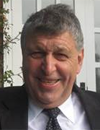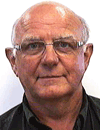|
Please note that the times listed are in EST |
| |
|
Immunotherapy in Cancer |
| |
10:00 | Recent Advances in Adoptive Immunotherapy of Cancer
Mark Lowdell, Lead Scientist/Director, University College London, United Kingdom
Adoptive cell therapies are part of a whole new breed of medicines and I will discuss how the legislation of these is being applied in Europe and the US. The requirement to use cells and tissues from the patient as starting materials in the drug manufacture is unique in pharmaceuticals and leads to important logistics and regulatory issues as these therapies move into mainstream clinical care. |
|
Quality Control |
| |
11:00 |  | Keynote Presentation Why Must the Origin of Stem Cells be Authenticated?
John Masters, Professor, University College London, United Kingdom
Quality control demands that the donor origin of stem cell culture is confirmed using STR profiling. Approximately 20% of cell lines are derived from a different donor to that claimed, indicating the importance of stem cell authentication. |
|
|
Single Cell Analysis |
| |
12:00 | Single Cell and Subcellular Expression Profiling; Insight into Mechanisms Behind Asymmetric Cell Division
Mikael Kubista, Professor/Founder, TATAA Biocenter AB, Sweden
In my talk I will present the highly robust and powerful experimental and analytical workflows for few and single cells that has been developed and I will also describe the qPCR tomography technique to measure intracellular expression profiles that prepare cells for asymmetric cell division. |
|
Market Trends |
| |
13:00 | Adult Stem Cells Market Trends
Enal Razvi, Managing Director, Select Biosciences Inc, United States of America
We at SELECTBIO have been continually tracking the cellular therapy space over the past decade. This presentation frames the cellular therapy marketplace both in qualitative and quantitative terms as it exists circa 2014. The data presented is based on our bottom-up market analyses and primary market surveys on large populations of stem cell researchers. |
14:00 | Enabling Cell Manufacturing: a Key Aspect of CCRM's Regenerative Medicine Commercialization Model
Michael May, Chief Executive Officer, Centre for Commercialisation of Regenerative Medicine, Canada
The Centre for Commercialization of Regenerative Medicine is a Canadian-based public/private partnership established to accelerate the development and commercialization of enabling Regenerative Medicine technologies? and cell therapies. Dr. May will present the general CCRM Commercialization model, which encompasses in-house expertise and facilities to optimize and scale cell manufacturing for clinical and commercial production. Industry bottlenecks, plus basic bioengineering principles will be presented with an aim of demonstrating the critical role that bioengineering plays in enabling the emerging cell therapy and regenerative medicine industries. |

